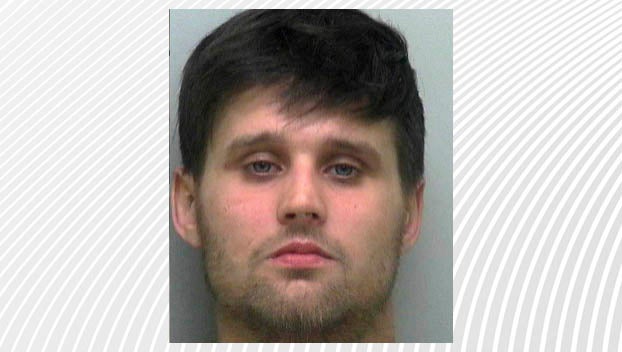Washington man sentenced to 20 years for drug, firearm charges
Published 6:15 pm Friday, January 28, 2022

- Dylan Holcomb
|
Getting your Trinity Audio player ready...
|
A Washington man was sentenced Wednesday to 240 months in prison for the distribution of fentanyl and an associated firearm violation. On June 24, 2021, Dylan Hunter Holcomb pled guilty to charges including conspiring to distribute fentanyl, possessing with intent to distribute fentanyl, and possessing a firearm in furtherance of his drug trafficking crimes.
According to court documents and other information presented in court, Dylan Holcomb, 28, sold counterfeit Xanax and Oxycodone pills across the country on the dark web. Using a high-capacity pill press, Holcomb and others used fentanyl and mixing compounds to mimic the effects of the narcotics. In January 2020, the United States Postal Inspector intercepted several suspicious packages coming from the Washington area. Each similarly wrapped package contained blue pills which were made to appear as Oxycodone but contained only fentanyl.
By March 2020, the Beaufort County Sheriff’s Office and the Drug Enforcement Administration discovered the source of these packages—Holcomb’s home in Washington. That month Investigators took Holcomb into custody and seized several bags of fentanyl; over 1,500 counterfeit pills containing fentanyl; a 3D printed firearm and silencer; a high-capacity pill press; several electronics used to access the dark web; and multiple cryptocurrency hardware wallets from Holcomb’s home.
In handing down the 20-year sentence, Chief Judge Richard E. Myers II noted the danger posed by using fentanyl in counterfeit pills and its contribution to the on-going opioid epidemic. After extensive interactions with the State criminal justice system, Holcomb faced the serious consequences associated with these lethal narcotics in the Federal system.
Michael Easley, U.S. Attorney for the Eastern District of North Carolina made the announcement after sentencing by Chief U.S. District Judge Richard E. Myers II. The Drug Enforcement Administration, the Beaufort County Sheriff’s Office, the United States Postal Inspection Service, and the North Carolina State Bureau of Investigation investigated the case and Assistant U.S. Attorney J.D. Koesters prosecuted the case.





